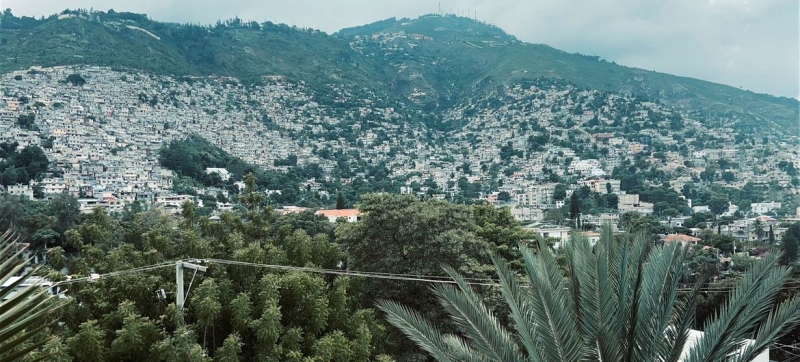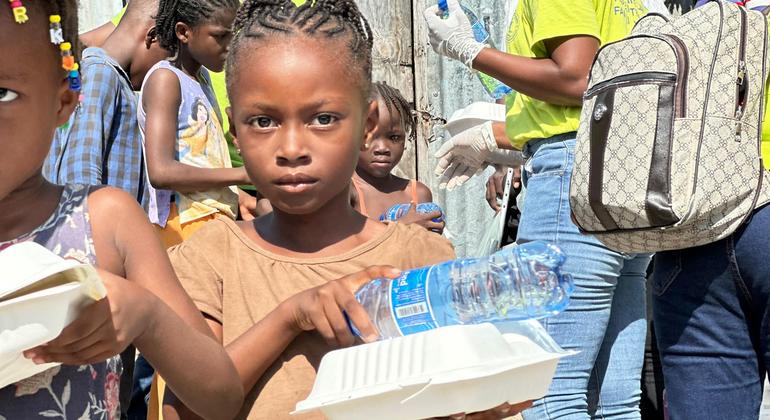
A view of Haiti’s capital Port-au-Prince. The UN continues to support the people of Haiti despite mounting risks Peace and Security
Gang violence in Haiti is growing at an alarming rate, with tens of thousands of people in the Caribbean nation forced to flee their homes and vital supply chains disrupted. Despite the mounting risks, UN humanitarian agencies remain in the country, helping the most vulnerable people survive the current crisis.
Armed gangs are expanding their operations into new areas and further isolating communities, according to reports coming out of Haiti. This is happening as the UN Security Council-backed Multinational Security Support Mission in Haiti is deployed to support and strengthen the national police.
On Wednesday, the Humanitarian Coordinator for Haiti, Ulrika Richardson, briefed the UN News Service on the current situation in the country. According to her, Port-au-Prince International Airport remains closed due to gangs firing on commercial airliners. Over the past four days, more than 20,000 people in the capital and suburbs have been forced to leave their homes in search of safety due to the growing violence.
Also on Wednesday, speaking at a Security Council meeting dedicated to the situation in Haiti, UN Assistant Secretary-General for Europe, Central Asia and the Americas Miroslav Jenča said that gangs have surrounded the Haitian capital and all access roads to it and, according to some estimates, control about 85 percent of Port-au-Prince. Moreover, on the night of November 18, a coordinated attack was recorded on the Petion-Ville suburb of the capital, where UN offices and diplomatic missions are located. The clashes resulted in numerous casualties.

Doctors Without Borders, an international humanitarian organisation that works in the world’s most dangerous conflict zones, announced this week that it was suspending its activities in the Port-au-Prince area after after one of the organization’s ambulances was attacked, resulting in the death of a patient.
Ulrika Richardson said on Wednesday that UN humanitarian operations had been ongoing since the start of “the current escalating crisis – and continue to this day.” “We have provided meals, medical and psychosocial support, and clean water to thousands of people,” she said.
A UN helicopter used to transport humanitarian supplies that were stranded due to the closure of the international airport has now resumed flights between Port-au-Prince and the country’s fourth-largest city, Cap-Haitien, Richardson said.
The UN World Food Programme (WFP) has distributed more than two million hot meals in Haiti since the beginning of the year. Over the weekend, despite the risks, WFP and its partners were able to deliver almost 38,000 meals to Port-au-Prince and the nearby town of Arcahai.
WFP’s assistance is not limited to the region around the capital. The agency and its partners distribute meals daily to more than 430,000 Haitian schoolchildren. Seventy percent of these meals are prepared entirely from locally produced ingredients. Some 97,000 Haitians receive cash transfers as part of efforts to create an alternative social protection system.
The International Organization for Migration also continues its activities in Haiti. IOM supports the operation of migrant protection centers, provides assistance through mobile medical clinics, subsidizes rent for displaced people, and provides them with psychological support.
